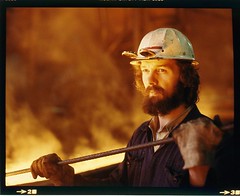 As many communities talk about economic recovery and future development, the conversation is often framed around the question, "what's the best investment of taxpayer dollars to achieve economic growth in our area?"
As many communities talk about economic recovery and future development, the conversation is often framed around the question, "what's the best investment of taxpayer dollars to achieve economic growth in our area?"
The question is scaled up and down - from "what's the best investment of the U.S. federal government's taxpayer-funded resources to recover from a down economy?" all the way to (in my local case) "how should Richmond and Wayne County, Indiana spend funds captured through the EDIT tax to develop the local economy?"
For many people, the question in that form doesn't have any problematic premises. But it's at least worth noting that there are some assumptions built in:
- That the government and/or economic development corporations are the best entities to facilitate economic development
- That taxpayer dollars should be used to fund economic development activities
- That economic development as traditionally defined is a good thing
And so on. Within each of those premises you can probably break them down further, e.g. if you ask people what economic development means, for some it's primarily "job creation" and for others its "improving quality of life" and for still others its "developing infrastructure."
The reality is that there are a number of layers to the conversation about economic development, most of them never touched or examined in the mainstream. We might visualize those layers this way:
Continue reading "Layers of the economic development conversation"




